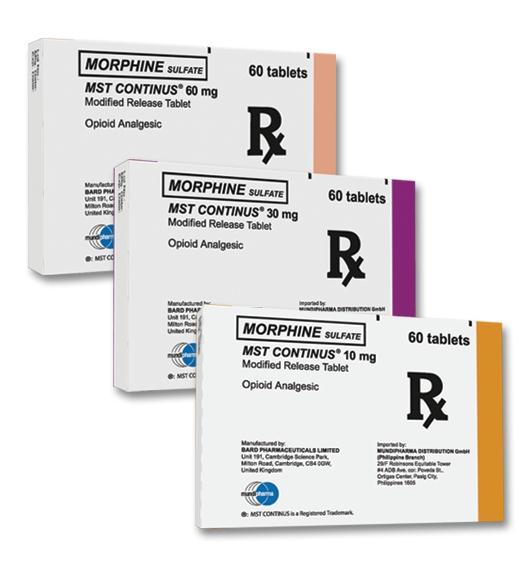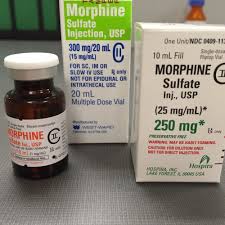Description
Buy Morphine Online: Uses, Dosage, Side Effects & Safety Guide
Morphine is a potent opioid pain reliever used to treat moderate to severe pain, including chronic pain, post-surgical pain, and pain associated with terminal illnesses like cancer. It works by altering how the brain and nervous system respond to pain.
However, morphine carries significant risks, including addiction, overdose, and severe side effects if misused. This guide covers everything you need to know about morphine, including dosage, side effects, precautions, and where to buy it safely online.
⚠️ Important Warnings Before Taking Morphine
-
Do NOT take morphine if you have:
-
Severe asthma or breathing problems
-
A stomach or intestinal blockage
-
Paralytic ileus (bowel obstruction)
-
Allergy to opioids
-
Taken an MAO inhibitor (e.g., isocarboxazid, linezolid) in the past 14 days
-
-
Morphine can slow or stop breathing, especially in children or non-prescribed users.
-
Mixing morphine with alcohol or sedatives can be fatal.
-
Pregnant women should avoid morphine—it may cause life-threatening withdrawal in newborns.
✅ How to Take Morphine Safely
-
Swallow tablets/capsules whole—do not crush, chew, or dissolve them (risk of fatal overdose).
-
Use the provided syringe for liquid morphine (never a kitchen spoon).
-
Do not stop suddenly—taper off under medical supervision to avoid withdrawal.
-
Never share morphine—misuse can lead to addiction or death.
💊 Dosage Guidelines
-
Starting dose for adults: Typically 10–30 mg every 4 hours as needed.
-
Extended-release forms: Taken once or twice daily.
-
Missed dose?
-
3x/day dosing: Take next dose 8 hours later
-
2x/day dosing: Take next dose 12 hours later
-
1x/day dosing: Take next dose 24 hours later
-
-
Never double dose!
🚨 Overdose & Emergency Info
Symptoms of overdose:
-
Slow breathing or no breathing
-
Extreme drowsiness, muscle weakness
-
Cold/clammy skin, pinpoint pupils
-
Unconsciousness or coma
❗ What to do:
-
Call 911 or Poison Control (1-800-222-1222) immediately.
-
Administer naloxone (Narcan) if available (reverses opioid overdose).
⚠️ Side Effects of Morphine
Common Side Effects:
-
Drowsiness, dizziness
-
Constipation, nausea, vomiting
-
Sweating
-
Mood changes (euphoria or sadness)
Serious Side Effects (Seek Medical Help):
-
Slow/shallow breathing
-
Severe drowsiness, confusion
-
Serotonin syndrome (agitation, hallucinations, fever, rapid heart rate)
-
Adrenal insufficiency (fatigue, weight loss, dizziness)
-
Low blood pressure, seizures
🚫 What to Avoid While Taking Morphine
-
Alcohol (increases risk of fatal respiratory depression).
-
Driving or operating machinery (morphine causes drowsiness).
-
Other CNS depressants (benzodiazepines, sleep aids, muscle relaxers).
🔒 Safe Storage & Disposal
-
Keep morphine locked away from children, pets, and others.
-
Dispose of unused morphine properly—flush it or use a drug take-back program.
💊 Where to Buy Morphine Online Safely
If you have a valid prescription, you can purchase morphine from trusted online pharmacies. Here are some related medications available:
🔗 Pain Relief & Opioids
🔗 Anxiety & Sedatives
🔗 Other Medications
⚠️ Always consult a doctor before purchasing or using opioids.
📌 Final Thoughts
Morphine is a highly effective but dangerous opioid that should only be used under strict medical supervision. Misuse can lead to addiction, overdose, or death. If you or someone you know is struggling with opioid dependence, seek help from a healthcare provider.
For genuine, prescription-based morphine, ensure you purchase from licensed pharmacies. Stay safe and use responsibly!
🔗 Explore more medications at Online RX Shop.
Disclaimer: This post is for informational purposes only and does not constitute medical advice. Always consult a healthcare professional before using any medication.













Reviews
There are no reviews yet.